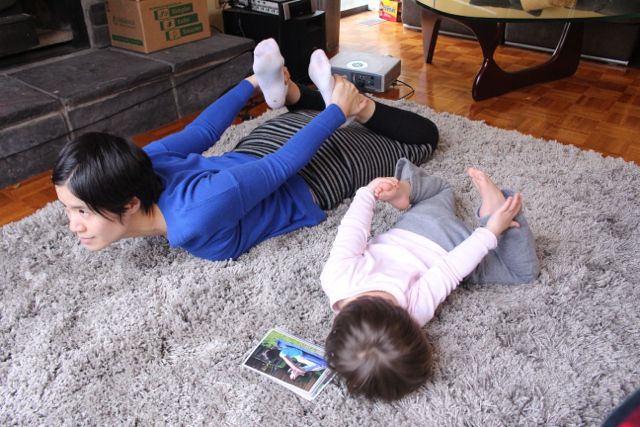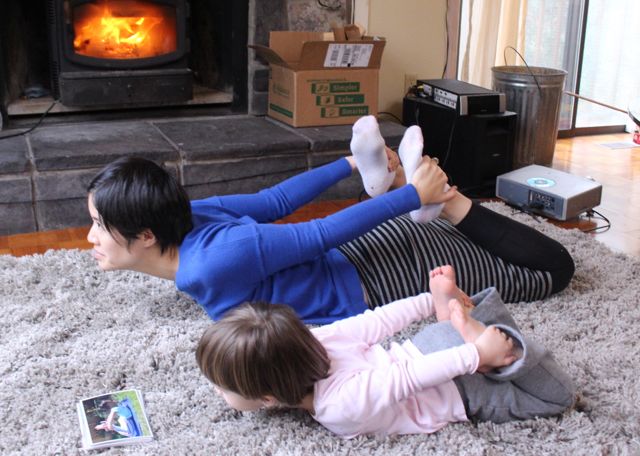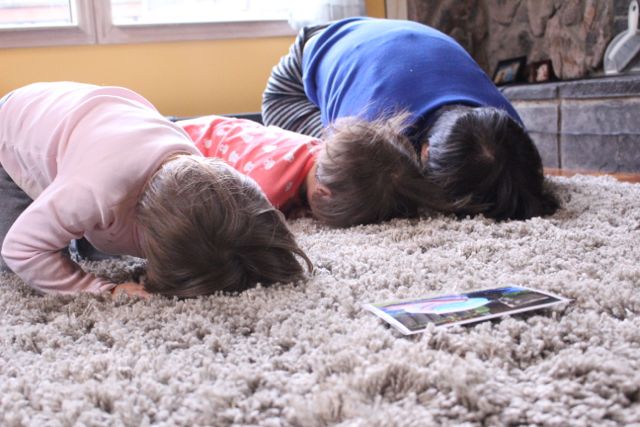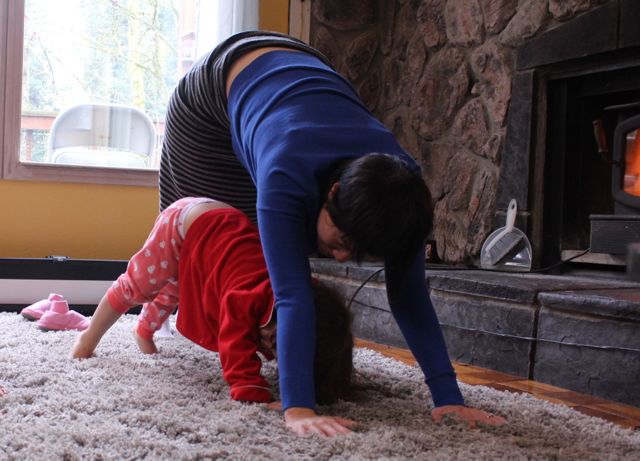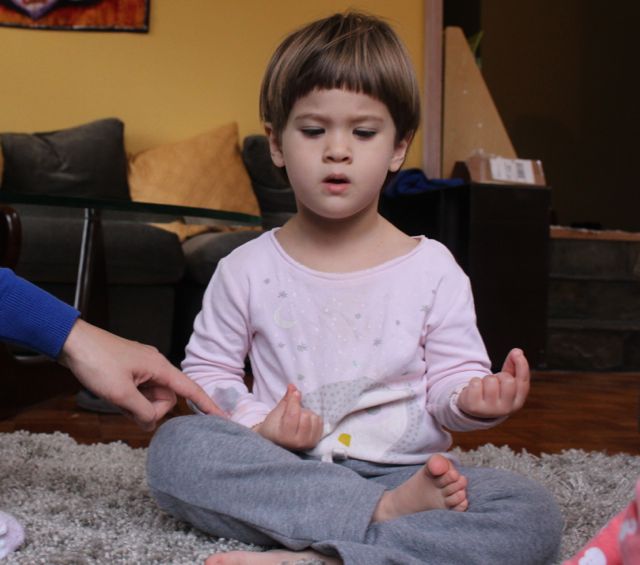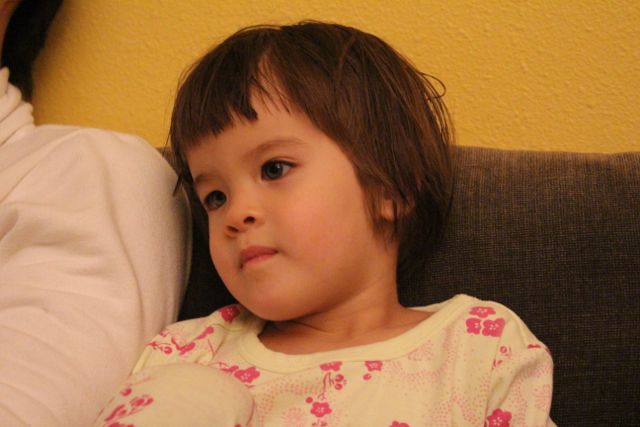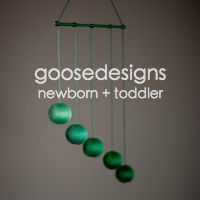
One evening, B and M (3 years, 1 month) decided to take everything off their kitchen shelf and put it into their backpacks. Plates, bowls and utensils jangled around loudly in their backpack as they hauled it around the house. When I announced storytime, they dropped everything in the hallway. Daddy stopped them and said, “You guys need to put everything away!” Mackenzie does as she’s told, with some help from me. Brooke, ever the rebellious one, refused.
Mark is an amazing dad, but – like all of us – sometimes he doesn’t know what to do when the children don’t do what he asks. He asked first in a firm and respectful tone. Then he gave Brooke choices, “Do you want to go by yourself or do you want me to carry you?” She avoids looking at him, so he chooses for her and carries her to the kitchen. They stand in front of the kitchen shelf for a good five minutes where she still refuses to put things away, so he decides to give her ‘time-out’ on the couch. She somehow falls off the couch and starts screaming.
It was clear this classic power struggle was going nowhere, so Mark handed her off to me (teamwork, people). I first asked where she hurt herself. She pointed to her head, so I sat and held her quietly for a couple minutes till she stopped crying. Even if she fell trying to get out of time-out, she still needed empathy first. (See Connection Before Correction)
Then I looked her in the eyes and told her the facts, “I’m going to read stories now. You can join us after you put away your dishes and utensils.” I added, “You don’t have to put anything away if you don’t want to, but then you won’t be able to read books with us tonight.” I wanted to convey this was her choice. I put her down and went back to the bedroom. I sat down next to M and started reading. B got into bed with us and tried to pull the book toward her so she can see it. I held the book close to my chest and said in a friendly tone, “You can join us for this story after you put away your dishes and utensils.” She doesn’t move. She tried to pull the book toward her a couple more times, but each time, I tell her the same thing. My tone was friendly, but my stance was firm.
Finally, Mark came to ask her again. This time she got up, went to the kitchen and put everything away, with some of his help (see Collaborating With Your Child). When she was done, she ran back to the bedroom and joined us for story time.
This kind of scenario happens in our house frequently and it illustrates a few key things around disciplining young children:
1. Understand your child’s developmental age
In this post, I talk about Montessori’s Three Stages of Obedience. Up to 3 years old, children are too young to be expected to obey. They have an inner directive that guides them, and their obedience is to that inner voice only. If they obeyed your request, it’s because it coincided with what they wanted to do. When it comes to cleaning up – if they are not readily willing – you can ask them to help, then hold their hand and model doing it with them by your side.
Recently, my children have transitioned to the 2nd stage of obedience, where they want to obey, but can’t do it consistently. How do I know this? I’ve observed them doing what I ask more frequently, but still inconsistently. If you’ve notice your child being able to obey your requests more frequently, then you can make more requests, while continuing to offer collaboration. It is appropriate at this stage to provide logical consequences if they don’t do as you ask.
2. Provide logical consequences
Here are few things that are NOT logical consequences:
- Taking away favorite toys that are unrelated to the situation
- Withholding sweets, trips to the zoo or anything that will happen tomorrow or a later time
- Time-outs and other arbitrary punishments. What does sitting in the corner have to do with cleaning up? Nothing.
A logical consequence is something that is directly related to what is happening. For us, we clean up before storytime, so it is sequentially logical: if you don’t clean up, you can’t join story time. If you throw a fork on the floor or leave the table, it means you are done eating. If you don’t get dressed, it means you can’t go out to play. These are logical consequences that make sense in the context of what is happening.
3. Don’t take it personally
If you understand the 3 Stages of Obedience, you will see that it is not personal. It is developmental. Your child is not being defiant on purpose, trying to make you angry, or being a bad kid. And you are not a bad parent! Their brain just hasn’t developed all the linkages it needs to follow your requests.
Last words of advice: Choose your battles. Don’t insist on everything. When they get to 5, they will obey your requests much more readily. If you don’t get embroiled in power struggles with your toddler, you’ll enjoy the magic of 2s and 3s so much more!





